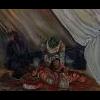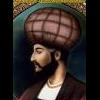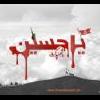- 313NEWS.NET - FORUM
- → Просмотр профиля: Сообщения: Hakkani
Hakkani
Регистрация: 01 мар 2010Offline Активность: 18 июл 2012 12:30
Обо мне
-"ALLAH İCİN ATESE ATILMAK VARDIR.LAKİN ATESE ATILMADAN
ONCE KENDİNDE
İBRAHİMLİK OLUP OLMADIGINI ARASTIR.CUNKU ATES SEN
DEGİL İBRAHİMLERİ TANIR
VE YAKMAZ.."
Статистика
- Группа: Murid
- Сообщений: 105
- Просмотров: 7 430
- Статус: Raqib – Seargeant
- Возраст: Неизвестен
- День рождения: Неизвестен
-
Пол
 Не указал
Не указал
Инструменты
Последние посетители
Мои сообщения
В теме: İki nəfər arasında elmi müzakirə
06 апреля 2012 - 23:59
Hansi dini tehsilin var ki, dini elmi müzakire etmek isteyirsen ?
В теме: Biz vəhhabiyik!!!
07 января 2012 - 22:43
Əbdül-Vahhabın qardaşı özü qardaşıgili vahhabi və vahhabilik adlandırıb.
Sənin əqlinə görə qardaşı dedisə vahabidir onda Et Təmimi vahabi oldu ? Onda sənin əqlinlə məsələyə yanaşsaq onda Muntaziri Mürtəd ve nasibidir ? http://rafiziler.wor...-ve-nasibi-der/
В теме: Biz vəhhabiyik!!!
07 января 2012 - 20:44
Əlhamdullah sələfi əqidəsinin tarixi məlum sunnə ehli olduğu da məlum. Amma sizin tarixiniz necə ki zeynalabidin(ra)dediyi kimi "Mümkün değil! Olamaz! Siz kalleş ve düzenbazsınız". Sizində tarixiniz məlumdurSizin şeyxiniz,
Peyğəmbərin (S) sünnətində buyurulduğu kimi, tük testədən (xəmirdən) ayrıldığı kimi İslamdan uzaqlaşmışdır.
Bütün qədim və müasir şeyxləriniz və bütün vəhabi-sələfilər "azğın yəhudilərə" (əhlı-kitabdan savayı) xidmət etmiş və onlar üçün çalışırlar.
Sizləri ən yaxşı halda Qəddafinin ölümünə bənzər bir ölüm gözləyir. Xəyanətkara xidmət edəni Allahsız bir ölüm cəhənnəmə qovuşduracaq.
Allah sizləri hidayət etsin!
http://rafiziler.wor...iilerine-yanit/
Allah saytın sahibindən razı olsun.
В теме: Biz vəhhabiyik!!!
07 января 2012 - 17:32
Yəqin ki, hamınız eşidirsiniz ki, sələfilər deyirlər ki, biz "vəhhabi deyilik". Hətta şeyxləri Qamət Süleymanov da deyir ki, bu bir damğadır, əslində belə bir şey yoxdur. Bəs görəsən öz böyük şeyxləri bu barədə nə deyir?
[attachment=2696:vehabi-seh1.jpg] [attachment=2697:vehabi-seh16.jpg] [attachment=2698:vehabi-seh17.jpg] [attachment=2699:vehabi-seh18.jpg]
Ibn Baza sual verirlər.فضيلة الشيخ، يسمي بعض الناس عندنا العلماء في المملكة العربية السعودية بالوهابية فهل ترضون بهذه التسمية؟ وما هو الرد على من يسميكم بهذا الاسم؟
Dəyərli şeyx, bəzi insanlar Səudiyyə alimlərini "vəhhabi" adlandırırlar. Siz bu adı qəbul edirsinizmi? Bunu deyənlərə cavabınız nədir?
Şeyx uzun uzadı şirkdən filan danışdıqdan sonra əsas məsələyə gələrək cavab verir.يدعون إلى توحيد الله من علماء التوحيد من علماء نجد وغيرهم يلقبون بالوهابية، فهو لقب معروف شريف وليس بمستنكر ، فهو لقب أهل التوحيد والإيمان، من أهل الدعوة إلى الله عز وجل.
Nəcd üləmasını vəhhabi adlandırırlar. Bu, tanınan və şərafətli addır, heç də təhqir deyil. Bu, Allaha çağıran Tövhid və iman əhlinin adıdır.
Əbdüləziz ibn Baz, "Fətava ən-Nur", 1/16-18
Və yaxud birbaşa İbn Bazın saytından da bu sözləri oxumaq olar. BUYURUN.
İndi əziz sələfilər, olar sizə vəhhabi demək, yoxsa necə?
bu şupeye cavab verilib çox ozunu yorma biraz su iç belke şeyxin ne dediyin başa düşersen o da başa düşsen
http://islamic-forum...showtopic=15607
В теме: Musa Peygamber ve Daş
03 января 2012 - 20:31
Əbu Əli Əfəndi və onun Tunisli dostu olan fısqırıq vəhhabinin bu şübhəsinə cavab verilib: Musa a.s və daş haqqındaki şübhənin cavabı
Əfəndi və dostu isə hər zamanki kimi iylənmiş dəlillərini utanmadan təkrar edirlər.
Elmeddin maşallah ingilizce bilirsen onda gel sene göndərdiyin sayita reddiye yazak ingilize mene ingilizce sayit verdin onda ingilizce cavab verek
You thought you will deceive Effendi but your bubble is going to blast.
You said
The most authentic opinion in this regard is that which states that Musa (عليه السلام) and Harun (عليه السلام) climbed a mountain, and Harun (عليه السلام) died there. But when Musa (عليه السلام) returned to inform his Ummah, they falsely charged him with the murder of his own brother. This annoyed him and Allah (عَزَّ وَ جَلَّ) cleared him of the charge.
Allamah al-Majlisi (رحمه الله تعالى) has recorded this particular opinion with a hasan chain in his Hayat al-Qulub, Urdu version, vol. 1, p. 542.
Your Allama Majlisi also graded the chain of the other narration , hasan.
بسند حسن حضرت صادق سے منقول ہے کہ ﴿بنی اسرائیل کو گمان تھا﴾ موسٰی آلہ مردمی نہیں رکھتے اور جب موسٰی غسل کرنا چاہتے تھے ایسے مقام پر جاتے تھے جہاں ان کوکوئی دیکھ نہیں سکتا تھا۔ایک روز ایک نہز کے کنارے غسل کر رہے تھے اور اپنے کپڑوں کو پتھر پر رکھ دیا تھا۔ خدا نے پتھر کو حکم دیا کہ موسٰی سے دور ہو جائے۔ موسٰی اس کے پیچھے چلے۔ یہاں تک کہ بنی اسرائیل کی نگاہ موسٰی پر پڑی تو ان لوگوں نے سمجھا کہ جیسا وہ گمان کرتے تھے نہیں ہے۔ اور اس آیت کے معنی یہی ہیں جسے خدا نے قرآن میں فرمایا ہے۔ ﴿ياايها الذين امنوا لاتكونوا كالذين اذوا موسى فبراه الله مما قالوا وكان عند الله وجيها﴾ یعنی اے وہ لوگو جو ایمان لائے ہو ۔ ان لوگوں کی طرح نہ ہو جانا جن لوگوں نے موسٰی کو ایذا دی تو خدا نے ان کو ان سے بری کیا جو وہ لوگ کہتے تھے اور خدا کے نزدیک روشناس تھے۔
It has been through hasan chain from Imam Sadiq that (the Bani Israel thought) that Moses doesn't have manhood. And when Moses wants to do ghusl, he goes to such a place where no one can see him. One day when he was taking a bath at the bank of a river, and he placed his clothes. God ordered the stone to get away from Moses. Moses ran after it. Till the bani israel saw at Moses and they understood that what they thought was wrong. And this is the meaning of this verse (ياايها الذين امنوا لاتكونوا كالذين اذوا موسى فبراه الله مما قالوا وكان عند الله وجيها ) i.e 'O ye who believe! Be ye not like those who vexed and insulted Moses, but God cleared him of the (calumnies) they had uttered: and he was honourable in God's sight.'
Hayat ul Quloob, Vol. 1, p. 379, Translated by Syed Basharat Hussain
Famous Pakistani scholar, Allama Hussein Bakhsh Jara (رحمه الله تعالى) also writes about that verse (33:69):
There are different views regarding the miseries which Musa (عليه السلام) had to face
1. Musa (عليه السلام) and Harun (عليه السلام) climbed up a mountain, and Harun (عليه السلام) died there; and when Musa (عليه السلام) came and told his nation about this, they charged him with his murder. And Allah (عَزَّ وَ جَلَّ) freed him of this charge by ordering angels who took up the funeral of Harun (عليه السلام) and passed by the nation of Musa (عليه السلام), and discussed his death; and so they realized that he died a natural death.
2. Qarun gave money to a prostitute so that she can charge Musa (عليه السلام) with adultery, but Allah (عَزَّ وَ جَلَّ) made her tongue silent, and she could not speak.
3. The nation of Musa (عليه السلام) termed him a magician, liar and mad, but Allah (عَزَّ وَ جَلَّ) freed him with his miracles.
There is another view mentioned in this regard as well. However, that view is not in accordance with the honour of prophethood, therefore, discussing that is awful.
[Tafsir Anwar-un-Najaf, vol. 11, p. 218]
After hundreds of years, Shia mufassireen thought it so awful to to discuss it? Anyhow, if you are interested in Indo Pak mufassireen, you know the superiority of Tarjuma maqbool over tafsir anwar al najaf, in the para 22 (Ahzab Ayah 69), you can read the same tafsir quoted from tafsir qummi.
Thus, the story of Musa (عليه السلام) pursuing a stone is unacceptable by Shiite standards from many angles:
1. It has a weak, disconnected chain.
2. It is only one of many opinions on the verse and it supports the Sunni view. For this reason alone it becomes absolutely unacceptable.
3. It contradicts authentic narrations on the same subject.
4. Its matn is unacceptable, since it defames a noble prophet of Allah.
Considering the utter weakness of the tradition in the Shiite sources, why did this Efendi al-Nasibi the Arch-Liar son of an Arch-Liar, follower of an Arch-Liar, still attribute it to us?
Rather I say you have no right to criticize
1. Majlisi declared sanad of both narration hasan
2. The belief in the protection of Quran is a sunni belief, large number of your scholars had the belief of tahreef in Quran, tarjuma maqbool is rampant will allegation of tahreef in Quran, (it is one of the most famous shia tarjuma having explanatory notes). So why do you accept this belief? And if you say that some of your scholars had the belief that Quran is not distorted, I say large number of your mufassireen mentioned this as the tafsir of this ayah.
3. Contradicts authentic narration? Majlisi said the sanad of both the narrations is hasan,
4. Matan is unacceptable to you, but acceptable to large number of your mufassireen.
5. Effendi attributed it to you because Effendi tells the truth and you are dajjal exposed right here.
- 313NEWS.NET - FORUM
- → Просмотр профиля: Сообщения: Hakkani
- Политика Конфиденциальности
- Правила форума ·



 Публикации
Публикации





